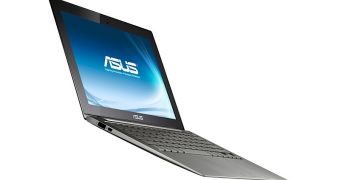For Intel to invest in some project or another is not a rare occurrence and it appears that the latest project to get funds is one of its own, the Ultrabook initiative in fact.
Intel came up with the Ultrabook idea a while ago and, though prices were assumed to be around the $1,000 mark, later reports revealed that just the hardware can be bought for as little as $475.
Regardless, Intel, naturally, has to put time, effort, thought and quite a bit of money into actually turning the concept of a super-thin notebooks (thin enough to put tablets to shame).
There is no question that the first three above conditions are being looked at, and it is now certain that the fourth has now been met as well.
Basically, Intel Capital issued a press release in which it states that a sum of $300 million will be spent on research and development.
“Ultrabook devices are poised to be an important area for innovation in the $261 billion global computer industry,” said Arvind Sodhani, president of Intel Capital and Intel executive vice president.
“The Intel Capital Ultrabook fund will focus on investing in companies building technologies that will help revolutionize the computing experience and morph today’s mobile computers into the next ‘must have’ device.”
The money will go to hardware and software makers, particularly those that have the IP necessary to confer upon the ultrabooks long battery life, high storage and innovative physical design. The efforts should bear their ripest fruit within the next 3 or four years.
“Celebrating 30 years of innovation, the PC is the ultimate Darwinian device and Intel is striving to again reinvent mobile computing,” said Mooly Eden, vice president and general manager of Intel’s PC Client Group.
“In 2003, the combination of Intel’s Centrino technology with built-in WiFi, paired with Intel Capital’s $300 million in venture investments and other industry enabling efforts, ushered in the shift from desktop PCs to anytime, anywhere mobile computing. Our announcement today is about Intel mobilizing significant investments to achieve the next historic shift in computing.”

 14 DAY TRIAL //
14 DAY TRIAL //